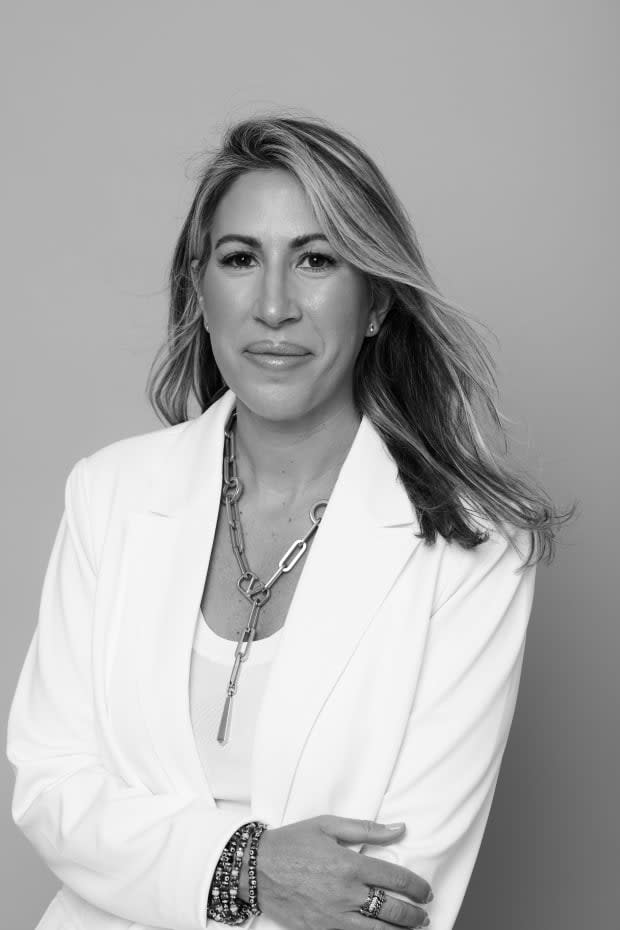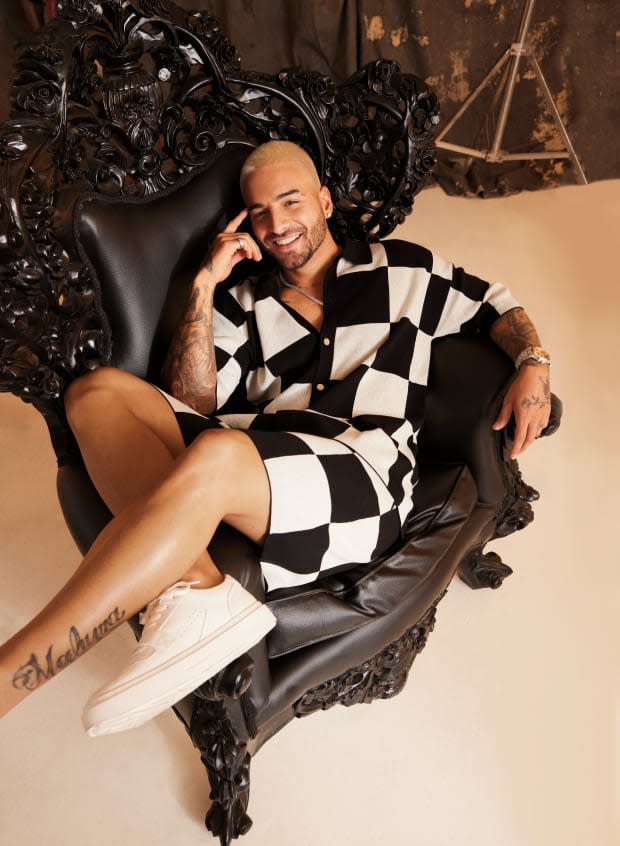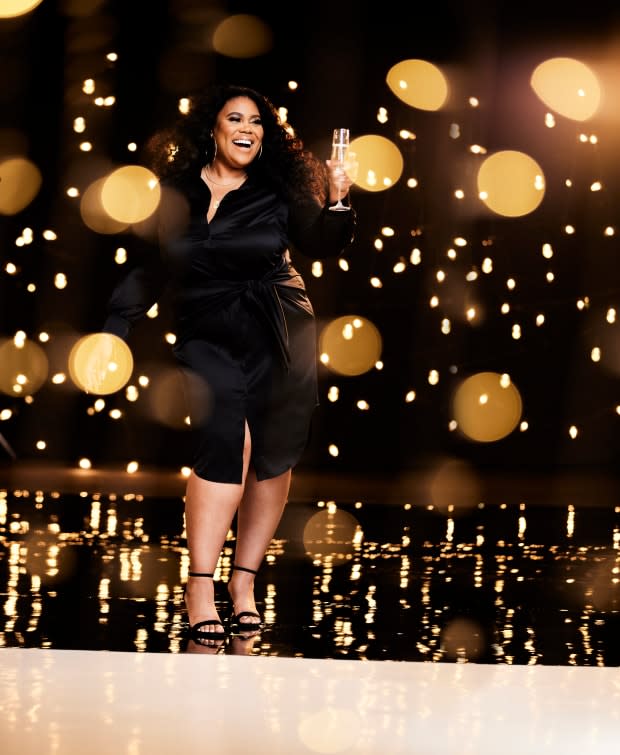The Model for Bringing Celebrity Fashion Lines to Retail Is Changing
Reunited Clothing is evolving how private label works in fashion, lifting the veil on the process and setting these brands up to succeed in the long term.
The celebrity fashion line has been a popular brand extension for the biggest names in film, television, music and beyond for centuries. They've achieved varying levels of success: You have the short-lived (Daya by Zendaya, Alexachung), the hyper-profitable (Jessica Simpson, Skims) and the ones that establish themselves so firmly, their story becomes less and less about the founder's A-list status (The Row, Victoria Beckham).
Much like their trajectories vary, so do the way they come to the market. It could be through a licensing deal that requires little involvement on the part of the talent, through equity deals that come with a "creative director" or "chief *something* officer" title or through DTC channels, à la Skims. The latter two may be particularly hot (and much more prevalent) in an evolving retail landscape, but a third route exists somewhere in between, with a celebrity launching their own brand at a major retailer with the help of a third party, a company that serves as a liaison between talent and stockist, that helps guide the design direction, that manufactures the product, that ultimately brings it to the market — what has historically been billed as private label.
Though it may be an old-school set-up, the private label model is still an important (and viable) one for celebrities wanting to dip their toes into fashion and bring their POV to the masses. At the same time, shoppers has become much more discerning. Just putting a famous person's name on a label won't move as much product as might have in the past.
"The customer is very savvy," says Hilda Batayneh, co-owner and creative director of New York City-based Reunited Clothing. "When they think it's something that they're being sold just to make the sale, it doesn't feel so good. But when there's a story and they know the person has been involved and it's really authentic to them, that's where it makes all the difference."
Reunited Clothing is one such company evolving how private label works in the celebrity fashion space. It has brought us Royalty by Maluma and Nina Parker's eponymous line, as well as capsules from Rocky Barnes, Cara Santana, Becca Tilley, Sofia Richie and more to Macy's, Express, Lane Bryant and Kohl's.
A Parsons graduate, Batayneh has been in the industry for about two decades, working in apparel manufacturing for the mass market sector. (While still in school, she decided that was the path for her, seeing much more appeal and potential there compared to luxury.) "There's a power and a magic to fashion that everyone should have access to; I really wanted to be able to put my stamp on that, and I felt the best route to take for my career was working with the mass department and specialty stores, bringing the approach of what designer brands were doing to an affordable level," she says. "That was my mission when I started off, and I continue to evolve it, but it's really staying true to what I came to this industry to do."

Photo: Courtesy of Reunited Clothing
Batayneh eventually connected with the men who would become her business partners at Reunited — Donald Kesselman, Jerry Finestone and Jeffrey Sherman — while they were all working for large fashion conglomerates in New York City. They co-founded Reunited Clothing in 2011 with the idea to bring "a very design-driven approach to private label," partnering with retailers and designing their in-house brands. (She describes Reunited as "a New York City design house and manufacturer for these retailers doing private label.")
"The beauty of private label is we were technically an extension of every retailer's team," she says. "We were the outside who were really the inside. We understood the brands and their missions. We knew what they were trying to go after."
Reunited Clothing began as a sweater house and grew its product offerings from there, eventually building out full collections. It was able to set itself up as both a creative and production partner for these established retailers largely because of the relationships and experience the co-founders bring to the table: Batayneh came in with the design vision, for one; Firestone leads sourcing, having come from a manufacturing family before joining the industry himself. ("He has relationships with owners of factories from decades ago, and now he's working with their kids who have grown up.")
"We have a very tight matrix. We work directly with factory owners," she says. "This industry is ever-changing, and retail continues to change. But as big as the industry is, it's also very small. People move around, but your reputation stays with you. Some of our accounts, we knew someone who had worked somewhere that we had worked and they're now at a new place and say, 'Hey, can you come in?'"
And while the business of private label has been, by definition, more of a behind-the-scenes operation, Reunited Clothing has presented itself a bit more openly. For one, it's had its own in-house line, Marled by Reunited Clothing, for many years, which, beyond introducing its work to a broader audience, helped it pilot new company strategies — the main one being celebrity brands.
To have a proof of concept they could show to retailers (and to test the waters of this well-established market) about the opportunity presented by these kinds of partnerships, Reunited Clothing decided to collaborate with a celebrity through Marled first. "It was almost like, 'We'll do the test on our brand, see how this model works, see if we can grow it to scale and then bring this concept to retail,'" Batayneh says. It worked with Olivia Culpo on a capsule collection, which was a success: Not only did Marled by Olivia Culpo perform well, it won a Revolve Award for Influencer Collaboration of the Year in 2018.
Having established that relationship with Culpo, Reunited Clothing brought her to Express as a celebrity collaborator and stewarded that project. That part of its business grew from there.
"I feel that maybe 15 years ago, everyone was like, 'Celebrity brands are over,'" Batayneh says. "Now I really see it coming back stronger than ever, but in very new ways."

Photo: Jack Waterlot/Courtesy of Macy's
Reunited Clothing positions itself as "matchmaker" between talent and retailers. Beyond making those connections, though, it guides talent through the entire process of building a brand and handles the logistics of putting together a collection.
"The number one question [we get from talent] is, 'Am I really going to get to design, or are you selling me a story that I'm going to come in and design my own line?,'" Batayneh says. "Most of the people we work with don't have a design background. Some actually have dabbled in design; sometimes, this is the second time they've done this. But most of the time, they just have great style or great influence in fashion. What we do is we figure out their likes and their true aesthetic."
Reunited Clothing's design team will meet with talent and do a "total analysis" of their vision for their brand and how that might translate into the actual clothes. They'll then distill that through a merchandiser's eye, narrow in on a potential assortment and start sketching. The talent will approve sketches, and Reunited Clothing moves into sampling, then fitting.
"We take them through the entire design process as if they're part of our team," Batayneh says. "We do it in about four to five meetings, but that's a lot of time, if you calculate the hours; then in between, [we'll discuss] any necessary touchpoint. Some people want to be extremely involved, others are like, 'I'll see it at the next phase.' But they really get to do the approvals. Some people I allow on the buy meeting so they can tell the story themselves. It's truly a collaboration that they have their hands in."
Usually, this all takes about a year, from conceptualizing to production to marketing to release. Whether a partnership will result in a stand-alone brand versus a short-term collaboration is the retailer's call, Batayneh explains — "but one thing we've learned over the years is that when you invest time into a partnership, it's probably a better idea to continue that."
"You get more out of the partnership if there's a more long-term strategy," she says. "It doesn't have to be five years, but give it a few seasons or a couple years. You need time to learn, to engage. The days of a launch-and-leave are over — it's nice to have that continuity; then you really get to bear the fruits of all your labor, and what you've been able to learn, you can apply and make the partnership even more successful down the road."
Reunited Clothing won't comment on how it splits profits between itself, retailer and talent. Batayneh did say that its contracts range in scope, from one drop or a year to longer. And while it gives exclusivity to its retail partners for launch, "once a brand becomes known for its own thing, there's an opportunity to then say, 'We want to open the doors. We want to go global. We want to expand our reach. We want to do some direct-to-consumer.' Those conversations can absolutely take place."

Photo: Jack Waterlot/Courtesy of Macy's
The two most well-known celebrity brands Reunited Clothing has launched are Nina Parker in 2021 and Royalty by Maluma in 2022, both of which are sold exclusively at Macy's. Batayneh describes the former as "revolutionary" for the way it has brought "positivity" and "excitement" to fashion, specifically for the plus-size customer. The latter, meanwhile, reaffirms Reunited Clothing's mission, in her eyes: "When we launched the collection in March, he was on tour in Europe; seeing him wear pieces from the collection on stage every night was amazing to me. He can choose to wear anything. That does prove that you don't have to pay a ton of money to look amazing. Here's someone who has access to everything, and they choose these garments because they love them and they feel good and they fit well. It just shows that quality doesn't have to come at this extravagant price point."
Ask her what makes for a successful celebrity brand, and Batayneh argues it goes back to, unsurprisingly, authenticity and ownership. Talent's approach to the celebrity brand has evolved, too, she argues: "Before, it was a check; now it's looked at as part of their brand, their portfolio. Anyone can pay for their own brand — they have the money and it takes money to do, but I think they realize the importance of holding a position in the fashion industry. I would say these partnerships are only getting more important as people find new ways to communicate with their audiences and bring some excitement and a fresh perspective to the fashion industry."
If the upswing in celebrity beauty lines in the past few years alone shows us anything, it's that interest in products from our A-list favorites isn't waning, whether it's skin care or blazers. So the market for companies like Reunited Clothing in fashion that connect those dots between name and brand will only continue to thrive.
Want the latest fashion industry news first? Sign up for our daily newsletter.

